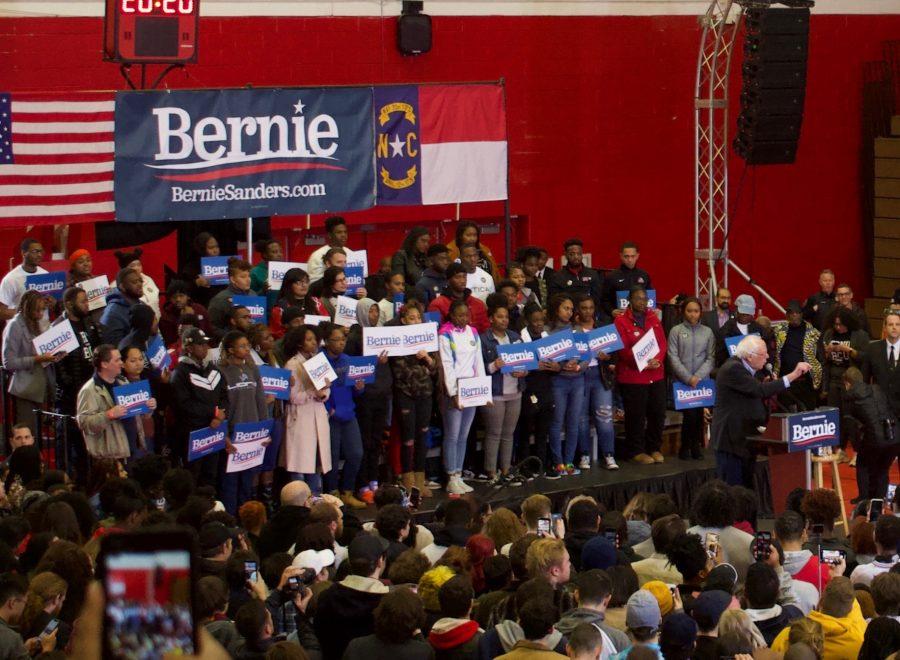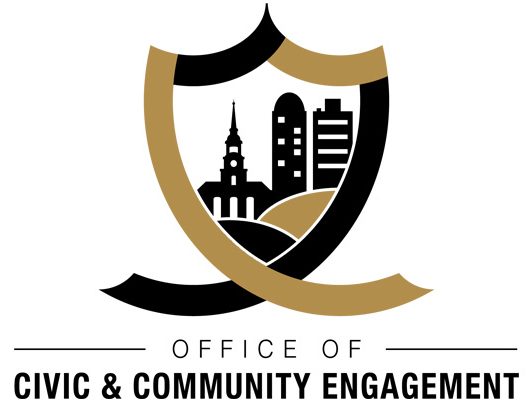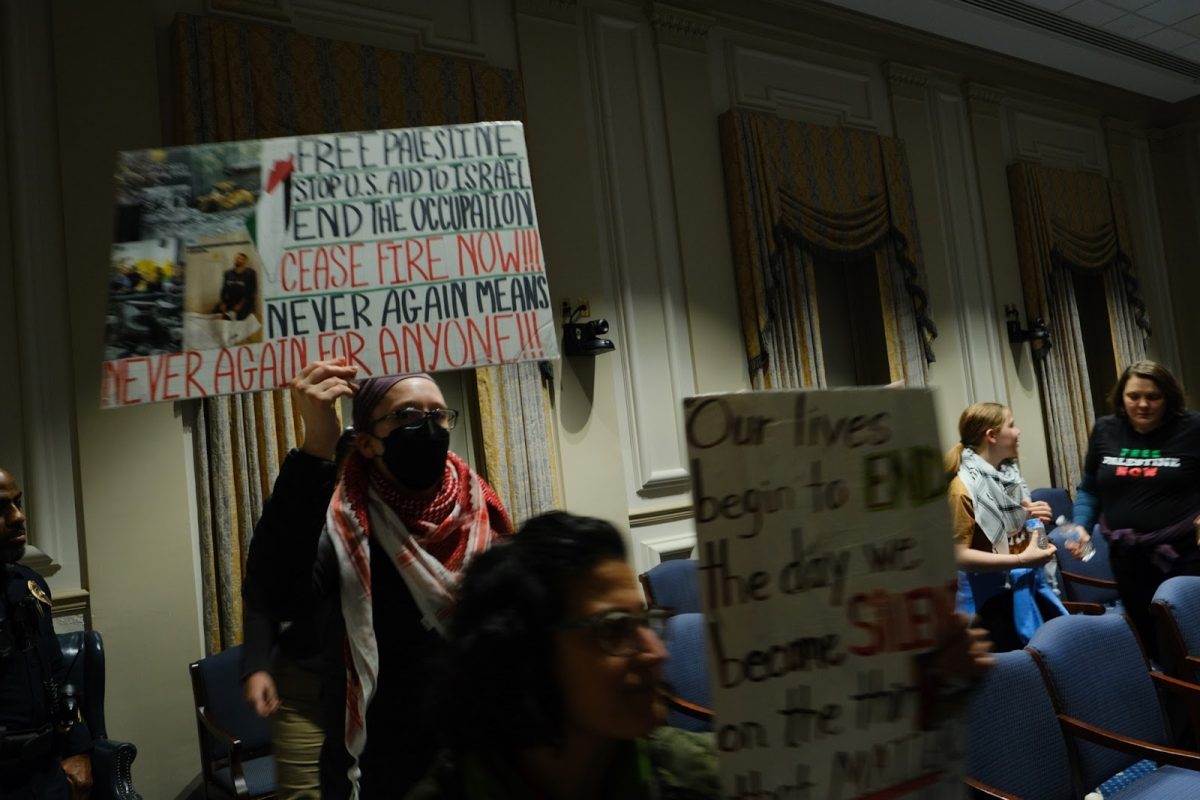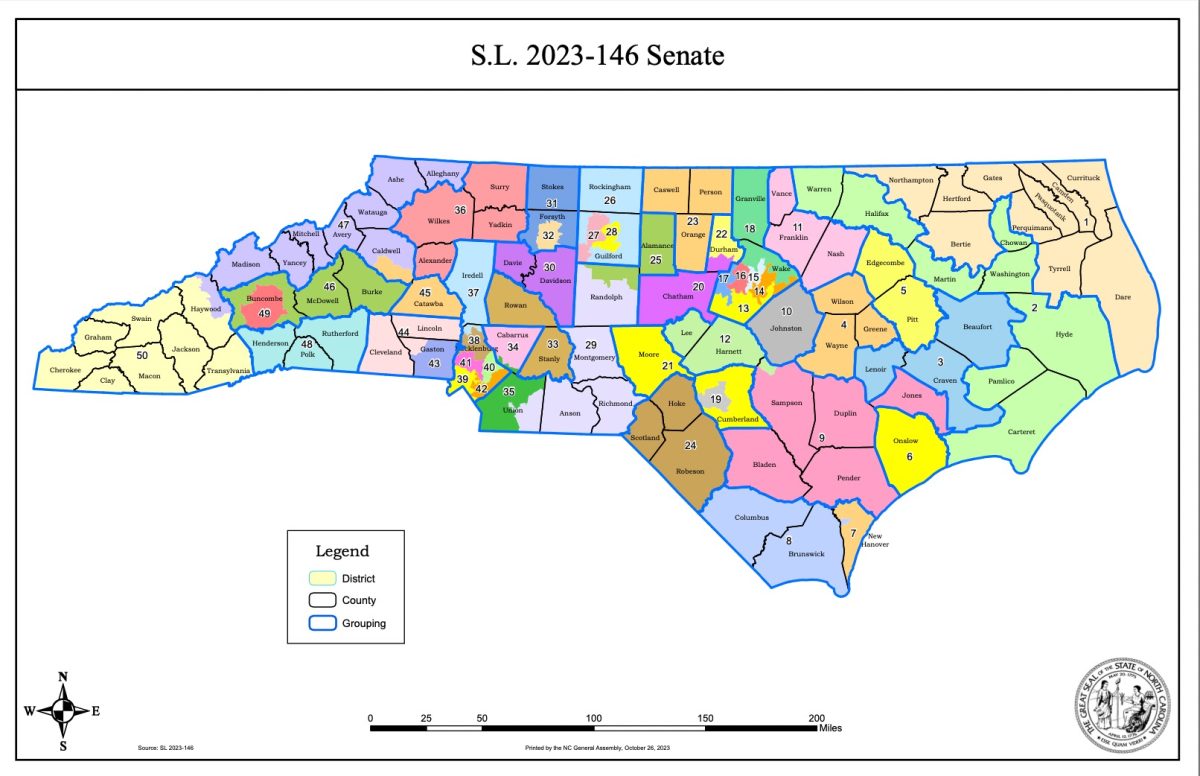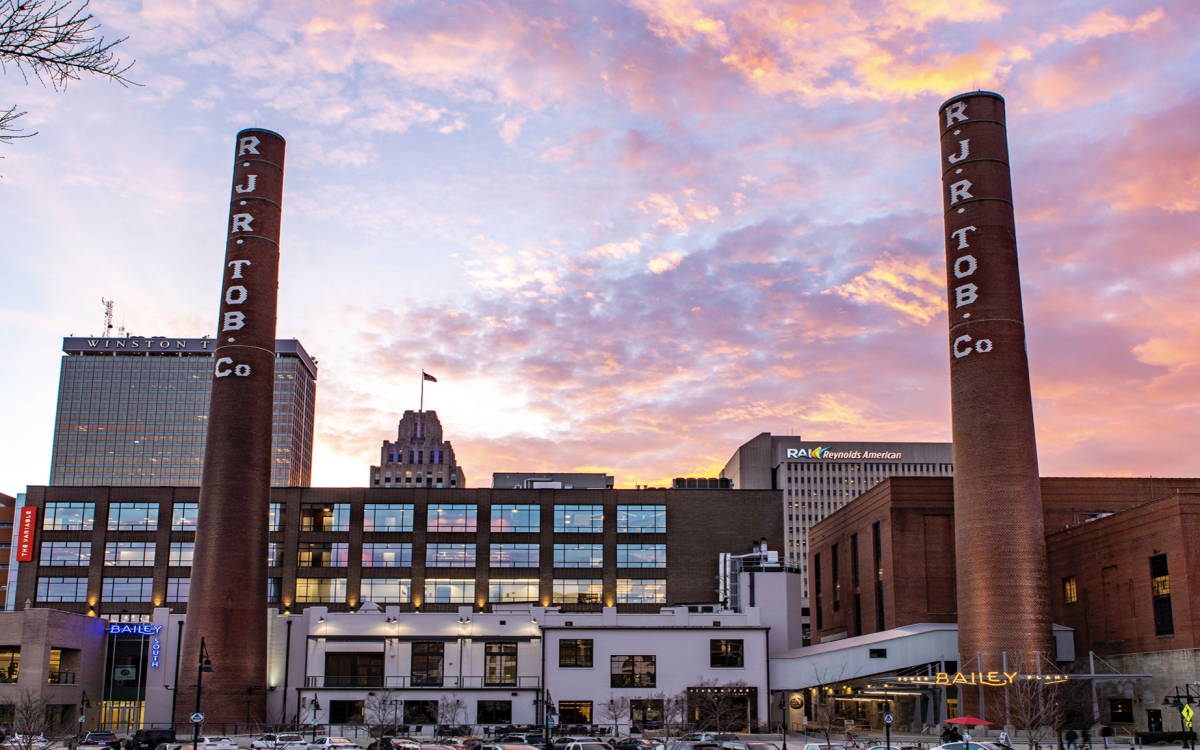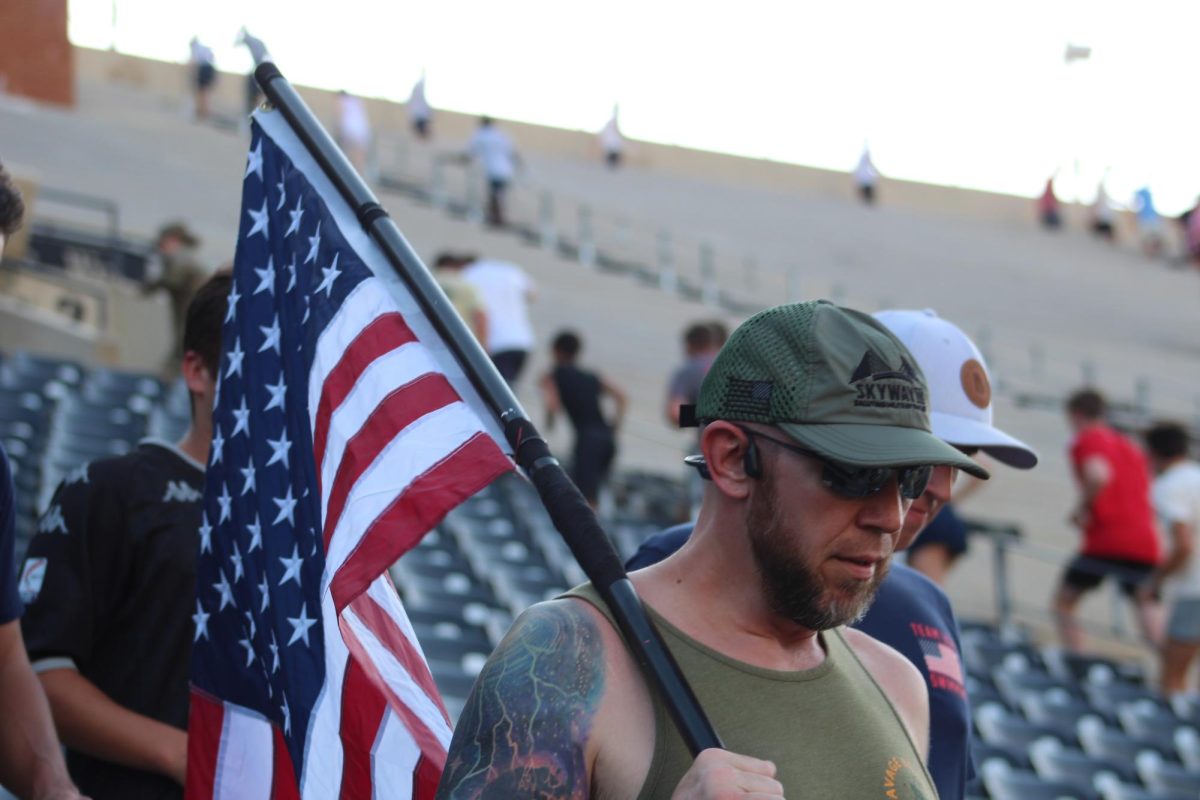Last Thursday, Feb. 27, Sen. Bernie Sanders appeared at the C.E. Gaines Center at Winston-Salem State University (WSSU) to campaign ahead of North Carolina’s primary.
Sanders is one of the current frontrunners for the Democratic presidential nomination and has notched primary wins in Iowa, Nevada and New Hampshire. He also won four states in Super Tuesday’s election, in Vermont, Utah, Colorado and California.
Sanders’ visit came on the heels of his stop at Greenleaf Christian Church in Goldsboro, N.C., where he spoke with the pastor and social activist Reverend William Barber II following a worship led by Barber.
gically convenient considering his efforts to appeal to minority voters, particularly in the South. Stickers disseminated at the rally read “Bernie for HBCUs.” This was a recurring talking point throughout the rally, with the candidate fleshing out his plans to strengthen historically black colleges and universities by increasing funding. This effort falls under Sanders’ larger “College for All” initiative.
Many supporters began lining up outside the doors well before Sanders’ slated appearance. Enthusiasm remained high while entering the gym, as pop music echoed into the rafters of the room and attendees eagerly chatted and danced. The scoreboards were set to “2020” for the election year and, behind the temporary stage at one end of the court, a Sanders campaign flag was nestled between the state and national flags. Much of the crowd consisted of students, predominantly from WSSU, but also from a number of other local schools, with a few families and community members rounding out the crowd.
At the rally, Sanders and his supporters seemed particularly interested in dispelling many of the myths that have attached themselves to the campaign. On one hand, there is the notion of the “Bernie bro,” or the aggressive young male who is hyper-vigilant in defending the candidate, behind screens and in real life. Speaking to the notion while in line before the rally, one volunteer urgently assured an attendee of the event that “I’ve heard the idea of the Bernie bro, but I’m not going to perpetuate it. It is a myth.”
While neither Sanders nor the stable of speakers preceding him explicitly mentioned this archetype, they did look to reappropriate much of the critical language associated with the “Bernie bro” and the campaign more widely. Speakers discussed the lofty aspirations of Sanders with regards to pay for teachers and funding for college, while Larry Little, a founding member of the Winston-Salem Black Panther party and tenured professor at WSSU, spoke to the candidate’s legacy of civil rights activism.
During her time at the podium, Nina Turner, a campaign co-chair for Sanders and former Ohio senator, punctuated her points about the social agenda of Bernie Sanders with bold proclamations.
“It’s not radical, it’s right on time,” Turner said.
Turner’s cries were met with full enthusiasm from the crowd, with Bernie posters raised and cheers shouted in unison to every peak of Turner’s speech.
When Sanders himself was on the podium, he spent time challenging many of the prevailing notions about what is considered to be pragmatic in politics. He argued that the American public should look at things such as universally affordable healthcare, free public college and criminal justice reform not as irrational and idyllic, but as both reasonable and achievable.
In one metaphor, Sanders likened the aid he could bring to struggling Americans to a drowning man floundering by a ship; the man does not care for the logistics of the rescue, he merely wants someone to jump in and help him.
Inevitably, much of Sanders’ rhetoric at the event turned to address the issue of President Donald Trump and Sanders’ chances of defeating the incumbent president in a general election. Eager to appease those anxious of a second Trump term and in order to rally enthusiasm, Sanders spent significant time attacking the current president and his supporters. Sanders leveled that Trump is a “pathological liar,” deals with a “corrupt administration,” is “undermining American democracy” and that, ultimately, the president is nothing more than a “hoax.” After the onslaught, Sanders mentioned all of the states in which “Bernie beats Trump” in current polls.
Sanders and his supporters did not allow the spectre of Trump to defeat their collective optimism. Following the rally, Sanders led supporters in a brisk march to an early voting site on campus.



